|

photo - mw
_______________________
Barking
Jim Harrison
The moon comes up.
The moon goes down.
This is to inform you
that I didn’t die young
.
Age swept past me
but I caught up.
Spring has begun here and each day
brings new birds up from Mexico.
Yesterday I got a call from the outside
world but I said no in thunder.
I was a dog on a short chain
and now there’s no chain.
_______________________

Orson Whales!
Welles Meets Led Zeppelin Meets Melville
Alex Itin
Open Culture
_______________________
The Criticism of Christine Brooke-Rose
1923 - 2012
passages selected by David Auerbach
waggish
“Whatever Happened to Narratology?”
Narratology was thus immensely useful. But in the end, it couldn’t cope with narrative and its complexities, except at the price of either trivialization or of becoming a separate theoretical discourse, rarely relevant to the narrative discussed, when discussed. In other words, it became itself a story, or set of stories, of narratives not only extradiegetic, metalinguistic, transtextual, paratextual, hypotextual, extratextual, intertextual, but also, yes, sometimes, textual, all at the same time. And so, yes, a ‘good’ story. Nevertheless, the study of narratological phenomena, as happens so often, turned into an endless discussion about how to speak of them. The story of narratology became as self-reflexive as a ‘postmodern’ novel. But after all, every age has the rhetoric it deserves.
...(more)
_______________________
Point and Shoot: How the Abu Ghraib Images Redefine Photography
Andy Grundberg, American Scholar, January 1, 2005
_______________________
Murder in the Simulacrum:
Bin Laden, Unbelievable Deaths and Depictions of Legal Exceptionality
Binoy Kampmark
ctheory
_______________________
The Port Huron Statement at 50
forum at the Boston Review
The Port Huron Statement
_______________________

Tammy in Culvert
(2008)
Salt & Truth
Catherine Edelman Gallery
Shelby Lee Adams
via gmtPlus9 (-15)
_______________________
Idiosyncrasy as a Tool of Knowledge:
Social Criticism in the Age of the Normalized Intellectual
Axel Honneth
Contrary to repeated claims of the disappearance of the intellectuals, their participation in public discussion has never been livelier than in today’s advanced democracies, Axel Honneth argues. Instead, he traces an epochal transformation that has brought about two fairly distinct types of reflexive positions: the constantly growing number of normalized intellectuals as the cultural byproduct and manifestation of the successful establishment of a democratic public sphere on one hand, and the marginal position of the social critic on the other. The public learning processes initiated by the latter are of much greater persistence and durability than any day-to-day intervention of normalized intellectuals could bring about, Honneth argues.
(....)
Unlike the activity of contemporary intellectuals, which despite all its appeals to generalizable norms nevertheless constantly raises publicly relevant issues, social criticism always has a holistic character. It does not interrogate the dominant interpretation of a particular specialized problem, public ignorance about dissenting opinions, or the selective perception of the material available for a decision; rather, it questions the social and cultural network of conditions under which these processes of will-formation arise. Rousseau’s critique of the self-referentiality of modern subjectivity is as good an example of what I am calling “holism” here as Adorno and Horkheimer’s culture-industry thesis. What these writings criticize is not individual events, particular mistakes, or relative injustices but the structural properties of the constitution of a social sphere as a whole. What drives social criticism is the impression that the institutional mechanisms and need interpretations that underlie public will-formation like a quasi-natural precondition are themselves highly dubious. It must therefore put everything into producing a picture of these apparently self-evident presuppositions that problematizes them. The second peculiarity of social criticism also results from the attempt to get a distance from a whole network of conditions: unlike the interventions of intellectuals, it structurally depends on using a theory that in one or another way possesses an explanatory character....(more)
Academia & the Public SphereEssay Archives
Social Science Research Council
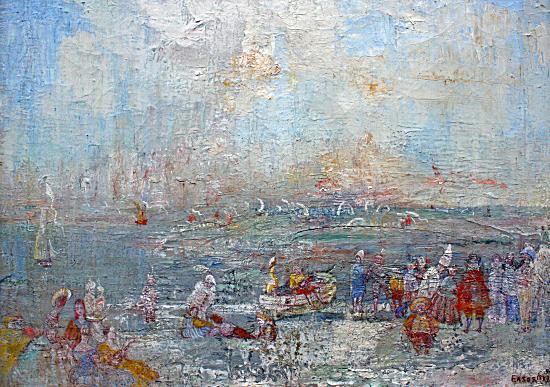
Carnival on the Beach
1887
James Ensor
b. April 13, 1860
_______________________
Imagination Dead Imagine
Samuel Beckett
b. April 13, 1906
..... The extremes alone are stable as is stressed by the vibration to be observed when a pause occurs at some intermediate stage, no matter what its level and duration. Then all vibrates, ground, wall, vault, bodies, ashen or leaden or between the two, as may be. But on the whole, experience shows, such uncertain passage is not common. And most often, when the light begins to fail, and along with it the heat, the movement continues unbroken until, in the space of some twenty seconds, pitch black is reached and at the same instant say freezing-point. Same remark for the reverse movement, towards heat and whiteness. Next most frequent is the fall or rise with pauses of varying length in these feverish greys, without at any moment reversal of the movement. But whatever its uncertainties the return sooner or later to a temporary calm seems assured, for the moment, in the black dark or the great whiteness, with attendant temperature, world still proof against enduring tumult. Rediscovered miraculously after what absence in perfect voids it is no longer quite the same, from this point of view, but there is no other. Externally all is as before and the sighting of the little fabric quite as much a matter of chance, its whiteness merging in the surrounding whiteness. But go in now briefer lulls and never twice the same storm. Light and heat remain linked as though supplied by the same source of which still no trace. Still on the ground, bent in three, the head against the wall at B, the arse against the wall at A, the knees against the wall between B and C, the feet against the wall between C and A, that is to say inscribed in the semicircle ACB, merging in the white ground were it not for the long hair of strangely imperfect whiteness, the white body of a woman finally. Similarly inscribed in the other semicircle, against the wall his head at A, his arse at B, his knees between A and D, his feet between D and B, the partner. On their right sides therefore both and back to back head to arse. Hold a mirror to their lips, it mists. With their left hands they hold their left legs a little below the knee, with their right hands their left arms a little above the elbow. In this agitated light, its great white calm now so rare and brief, inspection is not easy. Sweat and mirror notwithstanding they might well pass for inanimate but for the left eyes which at incalculable intervals suddenly open wide and gaze in unblinking exposure long beyond what is humanly possible. Piercing pale blue the effect is striking, in the beginning. Never the two gazes together except once, when the beginning of one overlapped the end of the other, for about ten seconds. Neither fat nor thin, big nor small, the bodies seem whole and in fairly good condition, to judge by the surfaces exposed to view. The faces too, assuming the two sides of a piece, seem to want nothing essential. Between their absolute stillness and the convulsive light the contrast is striking, in the beginning, for one who still remembers having been struck by the contrary. It is clear however, from a thousand little signs too long to imagine, that they are not sleeping. Only murmur ah, no more, in this silence, and at the same instant for the eye of prey the infinitesimal shudder instantaneously suppressed. Leave them there, sweating and icy, there is better elsewhere. No, life ends and no, there is nothing elsewhere, and no question now of ever finding again that white speck lost in whiteness, to see if they still lie still in the stress of that storm, or of a worse storm, or in the black dark for good, or the great whiteness unchanging, and if not what they are doing.
_______________________
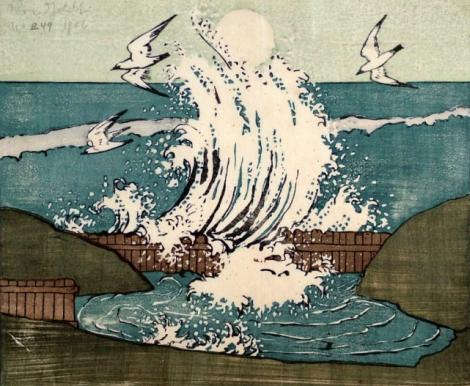
The Wave, Moonrise
1906
Bror Julius Olsson Nordfeldt
b. April 13, 1878
_______________________
Lyric Conceptualism, A Manifesto In Progress
Sina Queyras
The Lyric Conceptualist has moved beyond the indigestible and the unreadable, in fact, beyond all gestures that have made pleasure the enemy of reading.
Still, the Lyric Conceptualist remains true to her politics of inclusion, appreciating the thinkership of conceptual poetry, the revelations in mass assemblages that concretize the ephemeral textuality of daily life. Yet she stubbornly continues to bask in the reverie of solitude.
Lyric Conceptualism indulges in the excess of language while appreciating the clean lines of the minimal.
Lyric Conceptualism does not confuse clarity with simplicity.
Lyric Conceptualism rejects naļve notions of truth and beauty.
Lyric Conceptualism is not simply expressionism.
Lyric Conceptualism does not accept that content does not matter and still appreciates the way that content does not always matter.
If the Lyric Conceptualist lives in a forest it may be a concrete one, or a forest planted and coiffed by humans as much as animals, though she is not ready for the merely virtual or textual.
...(more)
.....................................................
The Soft Grid:
A Response to Sina Queyras’s Lyric Conceptualist Manifesto
Kenneth Goldsmith
_______________________

Nymphs,Dancers,Demons
James Ensor
_______________________
Stirrings still
Samuel Beckett
(....)
2
As one in his right mind when at last out again he knew not how he was not long out again when he began to wonder if he was in his right mind. For could one not in his right mind be reasonably said to wonder if he was in his right mind and bring what is more his remains of reason to bear on this perplexity in the way he must be said to do if he is to be said at all? It was therefore in the guise of a more or less reasonable being that he emerged at last he knew not how into the outer world and had not been there for more than six or seven hours by the clock when he could not but begin to wonder if he was in his right mind. By the same clock whose strokes were heard times without number in his confinement as it struck the hours and half-hours and so in a sense at first a source of reassurance till finally one of alarm as being no clearer now than when in principle muffled by his four walls. Then he sought help in the thought of one hastening westward at sundown to obtain a better view of Venus and found it of none. Of the sole other sound that of cries enlivener of his solitude as lost to suffering he sat at his table head on hands the same was true. Of their whenceabouts that is of clock and cries the same was true that is no more to be determined now than as was only natural then. Bringing to bear on all this his remains of reason he sought help in the thought that his memory of indoors was perhaps at fault and found it of none. Further to his disarray his soundless tread as when barefoot he trod the floor. So all ears from bad to worse till in the end he ceased if not to hear to listen and set out to look about him. Result finally he was in a field of grass which went some way if nothing else to explain his tread and then a little later as if to make up for this some way to increase his trouble. For he could recall no field of grass from even the very heart of which no limit of any kind was to be discovered but always in some quarter or another some end in sight such as a fence or other manner of bourne from which to return. Nor on his looking more closely to make matters worse was this the short green grass he seemed to remember eaten down by flocks and herds but long and light grey in colour verging here and there on white. Then he sought help in the thought that his memory of outdoors was perhaps at fault and found it of none. So all eyes from bad to worse till in the end he ceased if not to see to look (about him or more closely) and set out to take thought. To this end for want of a stone on which to sit like Walther and cross his legs the best he could do was stop dead and stand stock still which after a moments hesitation he did and of course sink his head as one deep in meditation which after another moment of hesitation he did also. But soon weary of vainly delving in those remains he moved on through the long hoar grass resigned to not knowing where he was or how he got there or where he was going or how we was going to get back to whence he knew not how he came. So on unknowing and no end in sight. Unknowing and what is more no wish to know nor indeed any wish of any kind nor therefore any sorrow save that he would have wished the strokes to cease and the cries for good and was sorry that they did not. The strokes now faint now clear as if carried by the wind but not a breath and the cries now faint now clear.
...(more)
_______________________
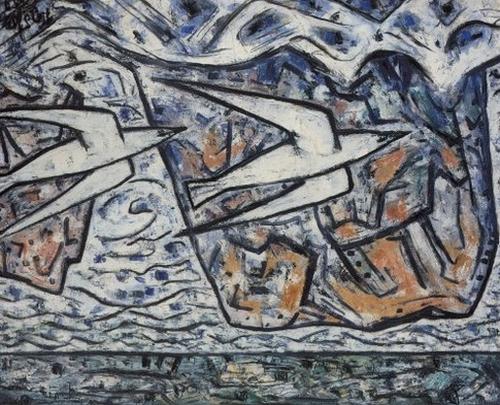
Bror Julius Olsson Nordfeldt
_______________________
If only I could make an effort, an effort of attention, to try and discover what's happening, what's happening to me, what then, I don't know, I've forgotten my apodosis, but I can't, I don't hear any more, I'm sleeping, they call that sleeping, there they are again, we'll have to start killing them again, I hear this horrible noise, coming back takes time, I don't know where from, I was nearly there, I was nearly sleeping, I call that sleeping, there is no one but me, there was never anyone but me, here I mean, elsewhere is another matter, I was never elsewhere, here is my only elsewhere, it's I who do this thing and I who suffer it, it's not possible otherwise, it's not possible so, it's not my fault, all I can say is that it's not my fault, it's not anyone's fault, since there isn't anyone it can't be anyone's fault, since there isn't anyone but me it can't be mine, sometimes you'd think I was reasoning, I've no objection, they must have taught me reasoning too, they must have begun teaching me, before they deserted me, I don't remember that period, but it must have marked me, I don't remember having been deserted, perhaps I received a shock.
—
Samuel Beckett: from The Unnamable
_______________________

James Ensor

Rocks and Sand Dunes, Oxwich Bay
South Wales circa 1939
John Nash
b. April 11, 1893
_______________________
Hitting Repeat: The Gathering Of The Broken Dreams
Brad Zellar
Your Man For Fun In Rapidan
Therewill come a day when the terminally disappointed and disenchanted will meetin a giant hangar somewhere in Kansas. Every dashed dream and broken heart fromall over America will converge there on the edge of some dusty little town toawkwardly mingle and avoid eye contact. Just as in Vegas, in the hangar therewill be no natural light and no clocks, and the only way to mark the passage oftime will be by the exhaustion in people's eyes.
...(more)
_______________________
Journal of Philosophy of Life
The Degradation of Human Relations Through Instant and Ever-present Communication, and the New Etiquette It Requires
John Shand
Human Dignity and the Manipulation of the Sense of Happiness
From the Viewpoint of Bioethics and Philosophy of Life
Masahiro Morioka
Journal of Philosophy of Life Vol.2, No.1 (March 2012)
Abstract
If our sense of happiness is closely connected to brain functions, it might become possible to manipulate our brain in a much more refined and effective way than current methods allow. In this paper I will make some remarks on the manipulation of the sense of happiness and illuminate the relationship between human dignity and happiness. The President’s Council on Bioethics discusses this topic in the 2003 report Beyond Therapy, and concludes that the use of SSRIs might make us “feel happy for no good reason at all, or happy even when there remains much in one’s life to be truly unhappy about.” I will extend their line of thought through two thought experiments. In the first, a “perfect happiness” drug is given to a person, and in the second a happiness device with an on/off switch is placed inside a person. The first case leads us to conclude that a life with dignity means a life free from domination by the sense of happiness and the sense of unhappiness. The second case leads us to conclude that a life with dignity requires substantive freedom to choose unhappiness. At the end of this paper, I present a new interpretation of “human dignity,” that is, “a life with dignity means a life in which we are able to explore our own life, equipped with both happiness and unhappiness, without regret, through relationships with others, without being exploited by the desires of anyone, and without being dominated by our own desires.”
_______________________

John Nash
1922
_______________________
New Writing at The Offending Adam
Three Poems
Tom Raworth
Kinetic Methodology
he took my comment
as some sort of piece
belonging to an attitude
said sabu
some electrical some mechanical some physical
to induce waterflow into the sinuses of the victim
move beyond your ability to resist
it is a controlled drowning
the mind of bin laden
had been templates
on a flash memory
camouflet zline unshun fursonae
...(more)
Tom Raworth at EPC and the Poetry Foundation
_______________________
Facebook and Instagram: When Your Favorite App Sells Out
Paul Ford
Facebook, a company with a potential market cap worth five or six moon landings, is spending one of its many billions of dollars to buy Instagram, a tiny company dedicated to helping Thai beauty queens share photos of their fingernails. Many people have critical opinions on this subject, ranging from “this will ruin Instagram” to “$1 billion is too much.” And for many Instagram users it’s discomfiting to see a giant company they distrust purchase a tiny company they adore — like if Coldplay acquired Dirty Projectors, or a Gang of Four reunion was sponsored by Foxconn.
So what’s going on here?...(more)
_______________________
A Year From Monday
Reading Through John Cage's Writings, 2011-2012
a blog project by Richard H. Brown
_______________________

Springtime in the Village
1917
Daniel Garber
b. April 11, 1880
_______________________
The Latest Word
Curtis White
electronic book review
(....)
As for the promise of digital culture and our Amazonian future, is it possible to have there a literature that works through the spirit of change, of enstrangement, of refusal, and in which the sense of Beauty (whatever Keats meant by that vexed word) overcomes every other consideration?
I suppose. But it's helpful to remember just what a rich and difficult thing Keatsian beauty is. In a sense, it enstranges by re-collecting an object's original intimacy. It's as if Keat's is recalling the thing's true familiarity. The poem breaks the crust of habitual expectation and stereotype by abandoning the self's ordinary perspective in an act of sympathy for the existential integrity of others, even if only for Keats's famous sparrow. This is negative capability.
Can this deference to the dignity of being happen in the context of a Web dominated by corporations whose job is basically to create rigid market identities so it can better sell them? Is it possible to do your business through Amazon and be alienated, which is to say outside of it? ("Oh, my Amazon sales number broke into the hundreds! My editor will be thrilled!") You won't easily find the particularity of Keats's sparrow there, or Marianne Moore's toads, or Williams' wheelbarrow, or Pound's station in the metro. Worse yet, from what I can see, many writers and poets seem all-too-willing to play the game, creating fan pages and websites for their own brand. The writing community, such as it is, seems almost sick with desire for this ephemeral grace. Every genius and every deluded poseur proudly displays her own granular meme, blogging, posting, or selling a book for $.99 on Kindle. In the World According to Amazon the point is that it is not possible to be alienated because there is nothing outside of it! The Web is, in the worst possible sense, the night in which all cows are black....(more)

photo - mw
_______________________
Grim Tales
Norman Lock
elimae
(....)
The trees now grew without any longer observing the limits assigned them by nature. They reached into the sky until they looked out over "the floor of heaven." Recalling the old story, boys climbed them. Not only boys but men and even some old men who wished for gold. One by one they fell -- the old men and the young, and the boys, too -- not one of them having reached the top branches let alone the floor of heaven. Instead, they fell, all of them, earning for themselves neither wealth nor fame, only death at the foot of the unruly trees. And still the trees continued to grow without regard for the limitations of their kind until the roots tore from the ground and the earth was broken into pieces and destroyed.
...(more)
_______________________
The Topography of History
Thomas Mcgrath
(1916-1990)
All cities are open in the hot season.
Northward or southward the summer gives out
Few telephone numbers but no one in our house sleeps.
Southward that river carries its flood
The dying winter, the spring’s nostalgia:
Wisconsin’s dead grass beached at Baton Rouge.
Carries the vegetable loves of the young blonde
Going for water by the dikes of Winnetka or Louisville,
Carries its obscure music and its strange humour,
Its own disturbing life, its peculiar ideas of movement.
Two thousand miles, moving from the secret north
It crowds the country apart: at last reaching
The lynch-dreaming, the demon-haunted, the murderous virgin South
Makes its own bargains and says change in its own fashion.
And where the Gulf choirs out its blue hosannas
Carries the drowned men’s bones and its buried life:
It is an enormous bell, rung through the country’s midnight.
...(more)
_______________________

Foothills, Cumberland
1928
Ben Nicholson
b. April 10, 1894
_______________________
New Walls in the Information Age
Alphonso Lingis
Vol. 11, No. 3, May 2005>
Today the very nature of the media sweeps away the past. The instantaneous nature of television reporting holds our eyes gaping upon the future hot before us. Newspapers and magazines keep us breathless in the expectation of new inventions in cancer research, in mineral sciences, in energy production, in genetically altered food crops. The marketing industry excites us for new comfort and safety in personal transportation, new facilities in home cooking and entertainment, new pleasures in furnishing and clothing. As a result we have the sense that what mergers and contracts are being made, what inventions patented in Houston, Silicon Valley, the Ruhr, Lyon, Milan, Tokyo-Osaka, Shanghai, Taipei, Seoul, Mexico City, and Sao Paulo are important, will determine our lives. Societies that are still clinging to the allegedly discredited socialism or welfare state or that are not speeding up the allegedly needed market reforms are dismissed with impatience as backward.
There is another factor; it is that our immediate past forms a black wall that cuts us off from our forefathers and our ancestors. The immediate past of rich countries is the two wars in which they embroiled the whole world. And since then, so many lands where layers of older civilizations persisted slaughtered their populations in the same way. So many millions of people gassed, incinerated, buried in mass graves, disappeared. There are today so many of us who have no idea where or how our parents were disappeared. And so many of us no longer communicate with our fathers and forefathers; we no longer hear what they learned.
Alphonso Lingis Essay Collection mediafire pdf
_______________________
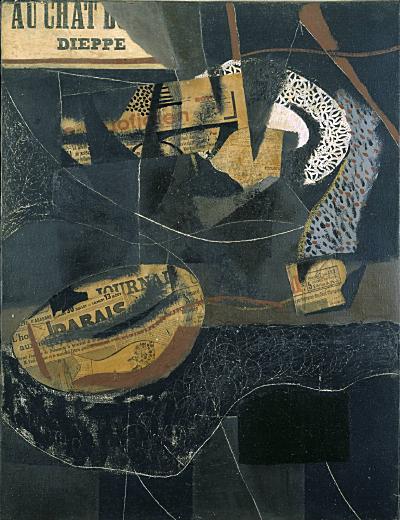
Ben Nicholson
_______________________
Why Conservatives Are Still Crazy After All These Years
Rick Perlstein
It suddenly feels like conservatism has gotten crazier than ever.
Republican debate audiences cheer executions and boo an active-duty soldier because he is gay. Politicians pledge allegiance to Rush Limbaugh, a pill-popping lunatic who recently offered "feminazis" a deal: "If we are going to pay for your contraceptives, we want you to post the videos online so we can all watch." Thousands of "Oath Keepers" — "Police & Military Against the New World Order"— swear to disobey the illegal orders certain to come down the pike once Barack Obama institutes martial law. One major Republican presidential candidate talks up indentured servitude — and another proposes turning schoolchildren into janitors. Only 12 percent of Mississippi Republicans believe Barack Obama is a Christian. Arizona Republicans push a bill to allow bosses to fire female employees for using birth control.
And so on and so forth, unto whatever wacky new wingnuttism just flashed over the wires today.
But are right-wingers scarier now than in the past? They certainly seem stranger and fiercer. I'd argue, however, that they’ve been this crazy for a long time. Over the last sixty years or so, I see far more continuities than discontinuities in what the rightward twenty or thirty percent of Americans believe about the world. The crazy things they believed and wanted were obscured by their lack of power, but they were always there – if you knew where to look. What's changed is that loony conservatives are now the Republican mainstream, the dominant force in the GOP....(more)
_______________________
Alienation, Exploitation, and Social Media
P J Rey
American Behavioral Scientist 2012
Abstract
This article is a critical examination of how capitalism has adapted to the explosion of websites devoted to user-generated content (commonly referred to as social media or Web 2.0). The author proceeds by reviewing how Marx applies the concepts of alienation and exploitation to his paradigmatic example (i.e., the factory); the author then attempts to extend the logic of both concepts to determine what they might reveal about the structural conditions of social media. A difference of prime importance between the two case studies is that factory work is wage labor coerced by economic necessity, whereas use of social networking sites is apparently voluntary and done freely. The author concludes by arguing that social media users are subject to levels of exploitation relatively consistent with industrial capitalism, whereas the structural conditions of the digital economy link profitability to a reduction in the intensity of alienation. Finally, he infers that social media is not economically beneficial to most users. _______________________

photo - mw
_______________________
The End of History, which is the Corporate global slogan, is not a prophecy, but an order to wipe out the past and what it has bequeathed everywhere. The market requires every consumer and employee to be massively alone in the present.
—
John Berger
_______________________
Five Poems [pdf]
Jerome Rothenberg
Romantic Dadas: Four Poems From
A Book Of Concealments
[From Concealments & Caprichos, Black Widow Press, 2010]
ROMANTIC DADAS
for Jeffrey Robinson
A late night party
where Romantic Dadas
cut a rug too iridescent
to resist
our smug caresses.
How will we begin
addressing them,
by name or by a face
that turns away from you
unseen, leaves scarce
a trace behind.
Mister Novalis,
or if that isn’t
your real name,
drop it right now
& try another.
He is too determined,
too far below
his average height
for anyone to count.
Aside from which
there are the odors
of the women
who surround him,
so many that the walls begin
to press his skull.
He has to break away
to make an outcry
in the name of Dada.
I & I & I are left
without a place
ulterior to place,
to run or hide.
Janus Head
Volume 12, Issue 1 _______________________
Riley Dog - Pinterest

Portrait of an Artist
1961
Mauricio Lasansky
1914-2012
_______________________
Neurocapitalism
Ewa Hess, Hennric Jokeit
Translation by Melanie Newton
eurozine
(....)
Is it a paradox, or one of those things that are so obvious they remain unobserved, that the success of Freud's psychoanalysis and that of modern neuroscience are based on similar premises? Psychoanalysis was successful because it wove together medically relevant disciplines like psychiatry and psychology with art, culture, education, economics and politics, allowing it to penetrate important areas of social life. At the beginning of the twenty-first century, the neurosciences seem to be in a position to take on a comparable role in the future.
What cannot be overlooked is that the methodological anchoring of the neurosciences in pure science, combined with the ethical legitimacy ascribed to them as a branch of medicine, gives them a privileged position similar to that enjoyed by psychoanalysis in the early twentieth century. Unlike the latter, however, the neurosciences are extremely well funded by the state and even more so by private investment from the pharmaceutical industry. Their prominent status can be explained both by the number and significance of the problems they are attempting to solve, as well as the broad public recognition of these problems, and by the respectable profits to be made should they succeed. In other words, they are driven by economic and epistemic forces that emanate from the capitalism of today, and that will shape the capitalism of tomorrow – whatever that might look like.
(....)
The lifting of temporal and geographical constraints on communication nurtures the illusion of unlimited accessibility and mobility. Just as the libertarian phase of capitalism offered ways for the individual to optimise his or her external appearance and status, so the imperative of the future will be to optimise cognitive and emotional resources as well. The availability of an unlimited supply of effective neuro-enhancers, the opportunity to exchange experiences of using them with others via the Internet, and the utilitarian approach to ethics taken by many individuals, are all preparing the ground for the market success of substances that today are still being experimented with in the laboratory.
The psychologically relevant question of how the self will relate to a mood-enhanced, more capable version of itself is rendered irrelevant by the fact that the requirements of the new capitalist reality make an individual improvement of this kind appear a highly desirable option. Indeed, as a consumer and commodity value appropriate to capitalism, it has already been in currency for some time. Alongside globalisation – the capitalist rationalisation of space and time – we are witnessing the epistemic and technical rationalisation of the neuronal foundations of the self, or what Walker Percy called the abstraction of the self from itself....(more)
_______________________
“the Brain Is The Ultimate Storytelling Machine, And Consciousness Is The Ultimate Story”
Richard Powers
the believer
(....)
Our theories about the world are deeply emotional, to us. Voiced idea is character.(....)
Story is the mind’s way of molding a seeming whole from out of the messiness of the distributed, modular brain. At the same time, shared stories are the only way anyone has for escaping the straightjacket of self. Good medicine has always depended on listening to histories. So any attempt to comprehend the injured mind naturally inclines toward all the devices of classic storytelling. Neurological case histories exist in a hybrid place between descriptive science and reflective art, a halfway place much like the narrated self’s.
(....)
Estrangement seems to have become the baseline condition for life in terrorized America. After November 2000, after September 2001, after the Patriot Act and the detainee bill, after Gitmo and Abu Ghraib, our stories—public and private—keep scrambling to keep America whole, continuous, and coherent, to place it. The basic outline of life here still looks familiar. But for a lot of people, the place no longer feels recognizable.
It seems to me that evil—the word of the hour, again—might be the willful destruction of empathy. Evil is the refusal to see oneself in others.
I truly don’t know what role the novelist can play in a time of rising self-righteousness and escalating evil. Any story novelists create to reflect life accurately will now have to be improvised, provisional, and bewildered. But I do know that when I read a particularly moving and achieved work of fiction, I feel myself succumbing to all kinds of contagious rearrangement. Only inhabiting another’s story can deliver us from certainty....(more)
_______________________

Hepatica
photo - mw
_______________________
Poems
David Kinloch
Blackbox Manifold
Wood
David Kinloch
Heartwood in softwood thought of Adam
and the chair back he gave the young gardener.
Sapwood in softwood remembered the shadow
cast by the apple on bark; springwood,
too young to recall much at all, imagined
the coming and going under the palm tree
at Timnah and corewood still felt the essential
pain of being bush in a world thinking itself
divine. Latewood allowed a final
sparrow to take its last blood red berry.
Then they shrugged and began to concentrate
on cell length, wall thickness, cellulose crystallinity.
Between them they wove their own myths
about moisture and fire, never took earth for granted.
...(more)
David Kinloch at Poetry International Web
_______________________

Mauricio Lasansky
_______________________
Instructions
Richard Hoffman
Say I was filled with regret
because I always fell for the future,
and that I learned that hope, like the rain,
can make the wrong things grow.
Explain I would have mourned
much longer if the world had let me.
Say that I hope to be remembered,
and that I wish I had forgotten less.
Set right the rumor I was ever
a believer: a story was told to me
as knowledge and I loved it once,
an arrangement of premises on which
I learned to build all you recall of me.
Belief has nothing to do with faith.
The first I lost early and all at once,
the second later, one loss at a time.
Tell them that, a sailor, I knew fog
was no excuse and certainly no comfort.
Assure them that when I had nothing
to say I said nothing, kept still,
and let things come clear in their time.
Because I spoke clearly does not mean
I remained unlettered, simple, or naļve:
tell them I saw all there was to see.
Emblem
Richard Hoffman
amazon
_______________________

photo - mw
_______________________
Profanations
Giorgio Agamben
Trans. Jeff Fort
pdf here
Desiring
There is nothing simpler and more human than to desire. Why, then, are om desires unavowable for us? Why is it so difficult for us to put them into words? It is so difficult, in fact, that we end up hiding them, constructing a crypt for them somewhere within ourselves, where they remain embalmed, suspended and waiting.
We are unable to put our desires into language because we have imagined them. In reality, the crypt contains only images, like a picture book for children who do not yet know how to read, like the lmagerie d'Epinal of an illiterate people. The body of desires is an image. And what is unavowable in desire is the image we have made of it for ourselves.
To communicate one's desires to someone without images is brutal. To communicate one's images without one's desires is tedious (like recounting one's dreams or one's travels). But both of these are easy to do. To communicate the imagined desires and the desired images, on the other hand, is a more difficult task. And that is why we put it off until later. Until the moment when we begin to understand that desire will remain forever unfulfilled - and that this unavowed desire is ourselves, forever prisoners in the crypt.
The messiah comes for our desires. He separates them from images in order to fulfill them. Or rather, in order to show they have already been fulfilled. Whatever we have imagined, we have already had. There remain the (unfulfillable) images of what is already fulfilled. With fulfilled desires, he constructs hell; with unfulfillable images, limbo. And with imagined desire, with the pure word, the beatitude of paradise.
_______________________
Cats
Charles Baudelaire
April 9, 1821 - August 31, 1867
translated by William Aggeler
Both ardent lovers and austere scholars
Love in their mature years
The strong and gentle cats, pride of the house,
Who like them are sedentary and sensitive to cold.
Friends of learning and sensual pleasure,
They seek the silence and the horror of darkness;
Erebus would have used them as his gloomy steeds:
If their pride could let them stoop to bondage.
When they dream, they assume the noble attitudes
Of the mighty sphinxes stretched out in solitude,
Who seem to fall into a sleep of endless dreams;
Their fertile loins are full of magic sparks,
And particles of gold, like fine grains of sand,
Spangle dimly their mystic eyes.
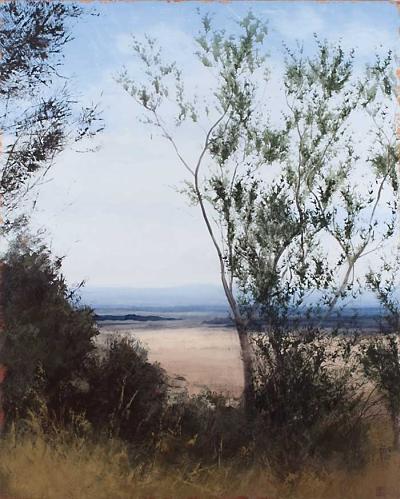
Journey to the Source
Oil & Beeswax Paintings
Philip Wolfhagen
Bett Gallery Hobart
via
_______________________
Four Poems by Heriberto Yépez
translated by Nathaniel Tarn
presented by Jerome Rothenberg
[Language] Belated
(....)
(The spiral searches for a substantive, a whom so it can happen).
Do you know the sign of being lost in thought? The sign of the lumberyard which survives solidly, oxidized to its best red, until being struck [in its permanence] and made absolute black dust [in a single moment]?
Do you know the sign of the orange? (An orange which falls from no tree).
Any language is. a. belated. language. I’m telling you.
And languages are always humid, always parched (you tell me).
In the beginning neither were there rotten grapefruit, you add
Nor were there any translations or paraphrases.
What political gospel? What terrors?
What is the price of this absolute order, this path which (now) cannot be taken blind
You now speak a belated language, you repeat, you (“now”) speak a recognizable language.
You have become intelligible – like caverns.
Mystery has parted ways with you. Of the other you only know the one.
You pretend to escape from every text to another text. Consequently you love anamnesia.
...(more) _______________________

Through the blackwoods
Philip Wolfhagen
Dominik Mersch Gallery
_______________________
Mystical Idiots
Saelan Twerdy
review of Spurious and Dogma
The New Inquiry
(....)
... It is not that we lack things to be serious about. On the contrary, Iyer claims, we are everywhere surrounded by crisis and catastrophe: environmental, financial, political, and spiritual. What we lack are “the literary means to register tragedy” and to challenge reality. What’s worse, authors carry on as if none of this is the case. By continuing to write literary fiction in the prestige mode, authors unwittingly produce kitsch that is empty at best and shameful at worst, the equivalent of “’The Nutcracker’ at Christmas.” When Iyer writes that “we all know Freedom cannot be Flaubert, and yet we cannot quite comprehend why that door is closed to us,” you can see him taking aim at what critic and blogger Mark Thwaite has dubbed Establishment Literary Fiction.
In its place, Iyer proposes an alternative. Inspired by the likes of Enrique Vila-Matas, Thomas Bernhard, and Roberto Bolańo, he invokes a non-literature or an un-literature that might survive our catastrophe. He advocates unliterary plainness and “choking directness,” the “day-after sobriety of a witness-report.” He calls for an openness that resists masterpieces and closed forms and instead allows real life — “gloomy, farcical life” — to drift in. “There is a terrible honesty in this work that sets us free. These are the writers who show us how, perhaps, we can proceed.”
And proceed he does, in the spirit of Beckett’s “I can’t go on, I’ll go on.” For those romantic enough to be nostalgic for literature as a world-historical discipline or for the avant-garde ambition to change the world or at least transform the reader, the present can only be a disappointment of apocalyptic proportions. ...(more)
_______________________
McLuhan at 100 - Picking Through the Rag and Bone Shop of a Career
Enculturation 12
_______________________
Journal of Digital Humanities Vol. 1, No. 1
_______________________

photo - mw
_______________________
TWO LINES Online: April 2012
Center for the Art of Translation
Suffocating City Square
Liu Xiaobo
Translated by Jeffrey Yang
(....)
The courage that infuses the man in the city square
infuses the solar system with each stride
Embers burn to daybreak
become the dim warmth of a word
bitter green fruit
ripening in death
A dedication to
the woman who needs no rose
her voice lights up the inferno
facing the vicious roar of a tank
standing unmoving
waving a weakened arm as if
opening a red umbrella on a gray rainy day
(....)
This death-hollowed city square
has become a justified absolute
that suffocates all life
This death-cast girl
has become a line of pure poetry
that surrenders all ideograms
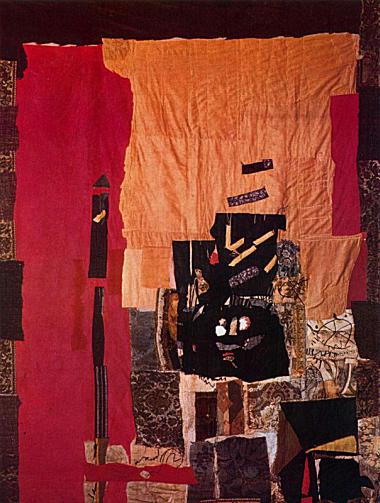
Grand guerrier
Antonio Clavé
b. April 5, 1913
_______________________
The Melancholy of Resistance by Laszlo Krasznahorkai
Review by Danny Byrne
ReadySteadyBook
... In many ways The Melancholy of Resistance is an old-school European ‘novel of ideas’ in the dialogic tradition of Dostoevsky through Conrad and Mann, yet it is also back-lit with a Kafkaesque disquiet. Tarr’s film is still probably better known than its source text among an English-speaking audience, and Werckmeister Harmonies is characteristically austere and inscrutable; it relies on surface and silence, and makes a virtue of its own cryptic lack of explanation. While these elements are present to some degree in Krasznahorkai’s novel, it is considerably more discursive, more tonally varied in its surrealism and dark humour, and more stylistically baroque than one might expect given the rigorous minimalism of Tarr’s treatment.
Whatever avant-gardeist reputation Krasznahorkai may have amassed thanks to his long sentences and Bernhardian distaste for paragraph breaks, his material is some of the oldest in literature: in fact, the symbolic devices read at times like a post-Nietzschean take on Elizabethan tragedy. There are two major interconnected metaphorical codes running through the novel. On one hand, the giant dead whale is a symbolically loaded literary signifier, somewhere between leviathan, Moby-Dick, a mysterious memento mori and a Trojan horse that smuggles into the town the seeds of its destruction; yet on the other it maintains the stubborn silence of materiality and non-being, a monument to the indifference of the phenomenal world. Meanwhile the thematic opposition of order and disorder – a throwback to the central mechanism of Shakespearian tragedy - is animated through the prism of the philosophical worldviews of four main characters: Mrs Plauf, Mrs Eszter, Valushka, and Mr Eszter.
The book highlights the schism between their various belief systems and its violent events....(more)
_______________________
“A Letter from Tegucigalpa”
From Mark Strand's new book of prose poems, Almost Invisible
Dear Henrietta, since you were kind enough to ask why I no longer write, I shall do my best to answer you. In the old days, my thoughts like tiny sparks would flare up in the almost dark of consciousness and I would transcribe them, and page after page shone with a light that I called my own. I would sit at my desk amazed by what had just happened. And even as I watched the lights fade and my thoughts become small, meaningless memorials in the afterglow of so much promise, I was still amazed. And when they disappeared, as they inevitably did, I was ready to begin again, ready to sit in the dark for hours and wait for even a single spark, though I knew it would shed almost no light at all. What I had not realized then, but now know only too well, is that sparks carry within them the wish to be relieved of the burden of brightness. And that is why I no longer write, and why the dark is my freedom and my happiness.
presented by Scott David Herman at erasing.org
via Twitter / roo370
Almost Invisible: Poems
Mark Strand amazon link
Mark Strand at the Poetry Foundation
Mark Strand, The Art of Poetry No. 77
Interviewed by Wallace Shawn
paris review
_______________________

Cortile della Madonna
Studiolum
Poemas del rķo Wang
_______________________
The Alan Lomax Sound Archive Now Online: Features 17,000 Recordings
Association for Cultural Equity
Alan Lomax: Selected Writings, 1934-1997
google books
pdf available at Monoskop/log
_______________________
Poem of Hope, Almost at Equinox
Brenda Hillman
(....)
History wakes us
to sort it out with the press
of great voices, silent now—; i fear
the bosses will always win.
Behind the owl, a broken line of sound:
green or baby everything:
badgers, herons,
the spirits have abandoned me;
let me not abandon myself—
Brenda Hillman at the Poetry Foundation
_______________________

Pacific Spring
Susan A. Point
b. April 5, 1952
1 2 3
_______________________
That day on the beach I was reading for my life. And as in all those instances where I turned to her, Adrienne Rich’s work was there, shining with the fierce conviction that our lives were what we wanted them to be. Adrienne Rich came to my rescue again that day on the beach at Cambria. I knew she was a few miles north of that beach, an actual woman in an actual California. In a little house like the one I imagined for myself. With a desk. Where she was writing. I knew that she had done it, had broken free of the story she’d been told about her life. And just as it had years earlier, when I’d found that first volume on the bottom shelf of my hometown bookstore, Rich’s work once again provided the essential handhold up and out of a life I didn’t want, a life I knew would ruin me.
If there is an afterlife, I hope she has some idea of what she meant to us, how crucial she was. I hope that wherever she might be that she knows how internet has been abuzz with tributes these past few days, knows that she knocked the pope off the front page of the New York Times site, knows that her death has been an event. That despite the current regressive war on women, that what she stood for has become ordinary in the best way. She already saved my life, that day on the beach, when her work got me through my doubts, reassured me that taking a risk on my own words, my own inner life, was not selfish, but the opposite, the thing we were put here to do. She saved all of our lives. With words. With her selfish, glorious, fierce words.
—
“I know you are reading this poem …”
Charlotte Freeman on Adrienne Rich
HTMLGIANT
_______________________

Antonio Clavé
_______________________
Kidult culture
Jyrki Lehtola
Translated by Owen Witesman
books from Finland
When did we start making television for children? I mean, in theory for adults (believe me, advertises, believe me: for adults!) but in practice for children?
Theoretically television is a wonderful, flexible medium less dependent on big money than the film business. Why did we let it slip out of our hands as a form of expression?
Why did we start making adult programmes for children and children’s programmes for adults? In other words, why do we make exactly the same TV programmes for everyone?
As always, everything was naturally better in the past. Before dinner there were ‘kids programmes’ for children to watch. In Finland they were usually Eastern European cartoons, but in other places they were American ones. In these shows good was good and bad was bad, but only temporarily, because in the end the bad guy always got to sit down with the good guy and eat a carrot too, since he had learned it was better to be good than bad.
Then something changed. Adults no longer grew up to be adults. Apparently life became so hectic that it demanded all the energy they had to give, so after work they had no desire to use their brains or concentrate on anything....(more)

blue drift
Scilla
photo - mw
_______________________
In Defense of Representation
Dmitry Vilensky
This issue of Chto Delat is a reaction to the current discussion on the necessity and potential of political and aesthetic representation. This problem, already elaborated by Plato in his time, remains the focus of debates about art and politics today. In the present situation, where anti-representational strategies dominate both within the new political movements and in politically engaged art, it seems that the entire debate is reducible to a clear and simple scheme: representation equals hierarchy and is thus bad. The corresponding antithesis is that a rejection of representation equals the absence of hierarchy and is thus a good thing.
In this issue, we want to show that this problem demands a more detailed analysis.
(....)
In the specific historical situation of March 2012, when we are forced to bid farewell to the euphoria generated by the wave of popular uprisings from Russia to Egypt, we see that the “scoundrels are celebrating victory” again (to paraphrase Alain Badiou). And so we try to understand what it is that leads, again and again, to the end of the most brilliant, courageous, radical and honest civic movements. Could it have been otherwise? What should have been done differently? Where were mistakes made? We pose these same questions in the realm of culture. How has it happened that, after many long years of socially engaged art practices, we see that people simply have not noticed their presence and impact on societal life, while the insolent domination of the art market has grown to a previously unimaginable scale, having proven capable of instrumentalizing the most radical forms of politically engaged art.
To give even an approximate answer to these difficult questions, we need once again to examine the problem of political and aesthetic representation.
(....)
Taken as a whole, the essays in this issue of our newspaper tell us that a change in perspective in art and politics is needed as never before.
Rather than endlessly rehashing debates about how we can escape from the clutches of all power relationships, we should try to imagine and begin to establish new forms of power relationships that would be subordinated to the common good and that society would be able to control and change when they require revision.
Rather than endlessly appealing to the mythical consensus of direct democracy and assemblies that represent no one knows whom, perhaps it would be wise to worry about developing systems of representation, forms of hegemony, democratic centralism and elected institutions for organizing structures of another kind, ones based on the dialectic of participation and representation....(more)
.....................................................
“A representation which is divorced from the consciousness of those whom it represents is no representation. What I do not know, I do not worry about.”
David Riff
There is something uncanny in this quote from Marx, torn out of context and pasted into a fresh document 150 years after it was written. It’s like looking into a mirror where there should be a window. It describes the status quo of our own spectacular world: a massive accumulation of non-representations, all divorced from consciousness. But at the same time, this is a world where self-representation, implying self-consciousness, claims to be everywhere, on mobile devices, in cars, airplanes, and even on remote desert islands. Representative machines previously only available in big clunky institutions are now open for everyone’s use. Consciousness is everywhere as a potentiality. But the pressure is too great. You have to represent. You have to hand in this text. Don’t think. Write. Self-expression before self-knowledge; find the right quick phrase for a certain state of subjectivity, shot out ultra-rapid in a network of friends, where it quickly loses connection to the consciousness that supposedly created it, becoming a micro-commodity, or a firing neuron in some collective mind we do not yet fully understand. Stop complaining. Represent. Of course, Marx wasn’t talking about representation in the artistic, cultural, or linguistic senses. In these particular sentences, he meant political representation. The quote above comes from an impassioned plea for the freedom of the press in covering the deliberations of the Rhine Province Assembly 150 years ago, one in a series of articles for the Rheinische Zeitung where Marx works through all the linguistic mis-representations and purely unconscious lapses in the available documentation of the closed Assembly’s proceedings. Part of the articles’ polemic program is the battle against direct censorship and other more intricately hypocritical means of keeping the work of government far from the public gaze. Marx is attacking a state that sees itself at a complete remove from its subjects, hovering above them as a police helicopter. We should see. We should know. We should worry. Marx is demanding transparency....(more)
.....................................................
Two critiques of representation (against lamination)
Steve Edwards
Chto delat
via I cite
_______________________

Andrei Tarkovsky’s Poetic Cinema
Matt Turner
Big Other
As an artist limited by his circumstance in the warring, emaciated USSR throughout the 60’s, 70’s and 80’s, Andrei Tarkovsky did well to establish himself as one of cinema’s greatest masters. In some sense, his works represent grand acts of imagination against the pressures of reality. Faced by an increasingly philistine world enveloped in the struggles of aggressive international politics and the constant threat of nuclear war, he felt it his duty as an artist to help reintroduce the poetic essence as a vital part of humanity. He imbued his cinema with an element of poetry that stuns the viewer both visually and emotionally, and with his vision as an artist he invented—as legendary Swedish film maker Ingmar Bergman said—a new language. It is no surprise that Tarkovsky’s father was a much-loved Russian poet with nine collections of poetry. As evidenced in his film Stalker, where one of his father’s poems is recited near the threshold of The Room (a place where one’s innermost desire is alleged to be granted upon entering), Tarkovsky used his father’s poetry as a source of inspiration for his cinema. You could say that he found poetry to be one of the highest forms of art, and wanted to instill the essence of it in his films. But what is the essence of poetry? Some might say it’s intangible, or that it simply doesn’t exist. Others might say that the essence of poetry is its unique presentation of ideas. Tarkovsky would likely say, however, that it is the art form’s ability to inspire a state of rational and irrational bliss through language....(more)
Matt Turner blogs at In Anticipation Of
_______________________

Bailey Brothers Barn
Senoia, GA
Structures, Textures, & Time:
Photographs by Judy Morris Lampert
Barbara Archer Gallery
via
_______________________
I, Inc.
Brandon Krieg
conjunctions
I incorporate gneiss and coal and
long-threaded moss
and fruits and grass and
esculent roots, a gravity dam
550 feet high on this
the continent’s steepest
river machine, with 13 other dams, a system
of locks and
ladders for commerce, continuance
of species, twin cooling towers
of a data center
for the world’s most powerful
search engine,
installed where a lost
indigenous Babel once converged
in that universal language—trade, night-spearing
of salmon by torchlight
lost (men’s faces aflash
in archives), expressionist
petroglyphs eerily
contemporary, photographed by
professors before
the big sink ...
...(more)
_______________________
The Taliban Cricket Club
Timeri N Murari
nthposition
(....)
“The ruling council of the Islamic Emirate of Afghanistan, and I, have decided to show the world that we’re a fair and just people. To that end, our government has decided to promote cricket in Afghanistan. We have applied to the International Cricket Council for membership.”
Like the others, I raised my head in surprise.
“We wait to hear from them on this. The Pakistan Cricket Board will support our application. Cricket will show all those against us that we too can be sportsmen. As our young men have much time to spare, we wish to occupy them to prevent any vices. We banned cricket because it was a legacy of the evil British. But we studied all sports and cricket is modest in its clothing. The uniform covers the player from his neck to his feet and covers his head as well. Therefore, we will encourage the sport, strictly according to Islamic rules of dress, and we will hold a tournament in three weeks. We will welcome an official from the International Cricket Council to observe the matches and know that we are genuine in our interest in promoting the sport, openly and fairly. The tournament is open to all Afghans and we will send the winning team to Pakistan to perfect their playing skills. They will return to teach other young men to play this sport. Women, of course, will not be permitted to play.” He ended the announcement and dismissed us.
“What do you think?” I asked Yasir.
“I write what they tell me, and I do not think. But let’s see how many Afghans turn up for the matches when they read about this. A free pass to leave the country—I wonder how many will return. Are you going to write this up?”
“Yasir—I don’t write anymore.”...(more)

photo - mw
_______________________
When The Winter Ghosts Depart
Steve Klepetar
They leave slowly, as if reluctant to go
or unsure when the time is right, like travelers
who can’t decide which books to pack, the long
Russian novel they’ve been struggling to finish
or the new one about cerebral werewolves, its firm hard binding
bright on the shelf promising a new kind
of death.
Where ice has leeched deep down into soil, they move
slowly, wading through dirt and loosened stones
but where the symphony of roots has bound them
in a coil of growth they hesitate, caught
up in the coming storm of leaf and branch and flower.
...(more)
From the DepthsHaunted Waters Press
_______________________

Drive Gates
1946
Ivon Hitchens
1893 - 1979
_______________________
The Agoraphobic Homeworld
Dylan Trigg
Side Effects
(....)
How can the world become a home—how can we be at home in the world? Once again, I am asking this question through the lens of agoraphobia. An agoraphobic subject finds himself in the world. Confronted with the nauseating contingency of his own existence, and thus the parallel horror of the outside world, he will find solace in the illusion of the home. For him, it will become a centre in several ways.
The first and most fundamental of these centres is the home as a site of reality; that is to say, an ontological centre. I take this centre from Bachelard, whose incipient agoraphobia sets in a place a boundary line marking the reality of the inside from the unreality of the outside — recall: “Memories of the outside world will never have the same tonality as those of home.” How does the home become a centre of reality? The question has negative form: it becomes a centre of reality through the structurally positive role of the outside as an unreality. Like the structure of Schopenhauer’s account of happiness, the agoraphobic home as a centre of reality has no value in and of itself, but instead adopts that value from the condition of the outside. What is the condition of the outside world? For the agoraphobic, the border to the outside marks a transformation in his concept of self-identity. It is a place of self-fragmentation, self-estrangement, and self-doubt. He cannot trust his body in the outside world, and so his relation to others dissolves, in turn conferring a sense of unreality upon the world. Denying both the validity of his body and his relations with others, the outside world assumes the form of a mirage—a simulacrum of reality deprived of the bodily intersubjectivity....(more)
.....................................................
Dylan Trigg and Figure/Ground Communication
interview by Laureano Ralon
(....)
Phenomenology is especially relevant in an age of information and digital media. Despite the current post-humanist “turn” in the humanities, we remain for better or worse bodily subjects. This does not mean that we cannot think beyond the body or that the body is unchallenged in phenomenology. Phenomenology does not set a limit on our field of experience, nor is it incompatible with the age of information, less even speculative thinking about non-bodily entities and worlds. Instead, phenomenology reminds us of what we already know, though perhaps unconsciously: that our philosophical voyages begin with and are shaped by our bodily subjectivity.
It’s important to note here that phenomenology’s treatment of the body is varied and complex. It can refer to the physical materiality of the body, to the lived experience of the body, or to enigmatic way in which the body is both personal and anonymous simultaneously. In each case, the body provides the basis for how digital media, information, and post-humanity are experienced in the first place. Phenomenology’s heightened relevance, I’d say, is grounded in the sense that these contemporary artefacts of human life tend to take for granted our bodily constitution.
But phenomenology’s relevance goes beyond its privileging of the body. It has become quite fashionable to critique phenomenology as providing a solely human-centric access to the world. This, I think, is wrong. One of the reasons why I’m passionately committed to phenomenology is because it can reveal to us the fundamentally weird and strange facets of the world that we ordinarily take to be clothed in a familiar and human light. Phenomenology’s gesture of returning to things, of attending to things in their brute facticity, is an extremely powerful move. Merleau-Ponty will speak of a “hostile and alien…resolutely silent Other” lurking within with the non-human appearance of things. For me, the lure of this non-human Other is a motivational force in my own work. It reminds us that no matter how much we affiliate ourselves with the familiar human world, in the act of returning to the things themselves, those same things stand ready to alienate us....(more)
_______________________
 sea cloud
Ivon Hitchens
_______________________
Greater Expectations
Christine Smallwood reviews Susan Sontag, As Consciousness Is Harnessed To Flesh
bookforum
(....)
The animating force at the heart of everything Sontag wrote—the cultivation of aesthetic and intellectual experience—is not properly speaking an idea; it’s a stance, or an attitude. It is itself a way of moving. There is no magnum opus or theoretical treatise that we can point to as Sontag’s distinct contribution, no “takeaway” we can pierce under glass. So it may not be very surprising that since her death eight years ago, the many provocations of her thinking have drifted out of view to make room for the more obvious fact of her celebrity. Besides, she’s a woman; we make good icons.
(....)
... Sontag knew very well that thinking is the person bent into form, the consciousness harnessed to flesh. To hate or love someone’s writing is to hate or love that person’s soul. There is no great life apart from great work. In my mind, that means what matters about Sontag is already in her criticism and her fiction. Her private writings do not expose personal secrets that explain her work; the opposite is true. We need her work to understand her notebooks....(more)
_______________________
Seminar on Debt: The First 5000 Years – Reply
David Graeber
Crooked Timber
_______________________

photo - mw
_______________________
The Graduate with a Precarious Future
Ross Perlin
“The most important thing a worker ever produces is himself….”
- Raymond Williams
I’ve lived in eight cities over the past seven years; worked for at least twelve employers in a variety of industries with and without pay; gone without healthcare, unemployment insurance, and a stable residence for substantial periods of time; waited months for paychecks while being held to 24-hour deadlines; been sharply questioned about my income and employment status by police, immigration officers, landlords, banks, and others. Without a “regular job”, without property, and without a traditional family, I have never been counted as a “community member”. The only constant has been a weather-beaten laptop—and the endless search for space to work in. A clean, well-lighted place with electric outlets and dependable wireless. I’ve hated it and I’ve loved it—every day. I’ve been drinking a lot of coffee.
(....)
Whether the precariat is an actual class-in-the-making or an academic category in search of willing members, there is every indication that temps, freelancers, interns, independent contractors, part-timers, and precarious workers of all stripes are asserting practical needs and political demands as never before. The labour movement, and the Left more generally, must decide whether the goal is to roll back the tidal waves of precarious labour (if that is even possible at this point) or to embrace its positive dimensions and take up arms against its injustices. ...(more)
.....................................................
Intern Nation: How to Earn Nothing and Learn Little in the Brave New Economy
Ross Perlin
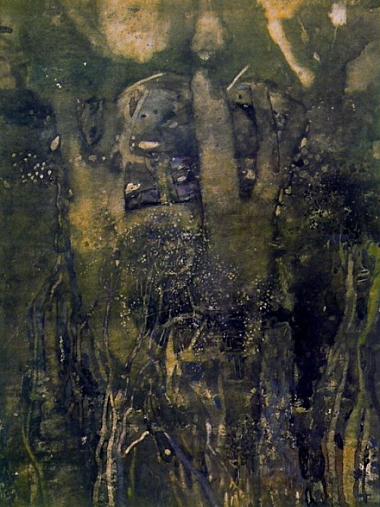
At the Edge of the Wood
Charles Rennie Mackintosh
1913
_______________________
The Politicality Of Performance
bilingual [Serbian/English] issue
TKH (Walking Theory) Journal for Performing Arts Theory (no.19)
Performance at the crossroads of citizenship
Janelle Reinelt
Politics is the activity of attending to the general arrangements of a collection of people who, in respect of their common recognition of their manner of attending to its arrangements, compose a single community [...] This activity, then, springs neither from instant desires, nor from general principles, but from the existing traditions of behaviour themselves. And the form it takes, because it can take no other, is the amendment of exist- ing arrangement by exploring and pursuing what is intimated in them.
— Michael Oakeshott
I have selected the concept of citizenship as a hinge between the several overlapping spheres in which postmodern people live their lives, and will address the relationship between citizenship and politicality through the lens of a theatre and performance studies scholar. Citizenship is a cornerstone concept of political theory and an essential component of democracy. In its aspects of role-playing, performing, representing, and social agency, it is also cen- tral to the relationship between politicality and performance.
While the initial relevance of this discussion to performing arts practices may not be immediately clear, several recent developments in our field are implicated in or related to citizenship discourses. First, the term “political theatre” has become increasingly weakened or even discarded by some scholars, thus losing its appeal to the social gathering power of theatre as one element of the public sphere. The civic traction that the characterization “politi- cal” can bring to the performing arts has been lessened by the seeming trivialization of art mentioned in the Call for Papers, on the one hand, and the gravitas of world-historical events on the other. While to be in opposition to a ruling system seemed possible and efficacious for artists in a Cold War era of binary thinking, opposition seems less likely than a kind of resistance-without-programme in an era of globalization and neoliberal assimilation. The anxiety I describe below about losing track of the world is part of this new situation. The meaning of being a citizen also threatens to slip away.
Second, a new universalism, whether imagined through a thinker such as Alain Badiou, or through a version of neo-Kantian cosmopolitanism (Rebellato is being linked to the disparagement of identity pol- itics as “over,” no longer relevant to a progressive performance practice. (These ideas often draw support from a cluster of thinkers such as Judith Butler and Wendy Brown in the US, Badiou, Jacques Rancičre, and Giorgio Agamben in Europe). The application of these ideas to performance means that the critical attention to matters of race, class, gender, and sexuality in performance (representation in both its aspects as mimesis and as political standing-in or counting-for) that has marked Anglo- American scholarship in the field for the last thirty years is now perceived as either misguided or outdated.
Third, the extremely influential discourse of postdramatic theatre, as described by Hans-
Thies Lehmann in his 1999 study, Postdramatisches Theater (Postdramatic Theatre) has circulated throughout theatre and performance scholarship, shifting attention away from any direct connection between theatre and political life outside the theatre, and turning attention inward to the processes of the theatrical apparatus itself and its internal politics: “It is not through the direct thematization of the political that theatre becomes po-
litical, but through the implicit substance and critical value of its mode of representation”. ....... _______________________

the illustrious forger of dreams
Max Ernst
b. April 2, 1891
_______________________
Barthesian adagio: reading and looking
Roger Gathman
Limited, Inc.
Among academics, it has now become common to use the term “read” when speaking of pictures.
(....)
... I’m happy with all this, up to a point. But I also like to listen to the ordinary angel of language, and that angel persists in speaking of “looking”: I looked at a picture, I watched a movie. This is what makes me think that more is going on, here, than the afteraffects of the busting of the White Mythology – which is otherwise unbruised in our geopolitics and economics, in our newspapers and Sunday supplements. In other words, when “looking” is systematically displaced by “reading”, I suspect that some nuance, some ‘difference’, has become roadkill. ...(more)
_______________________
SHI: A Radical Reading of Chinese Poetry
Yunte Huang
Introduction and excerpt from the Roof Book
This book is not an attempt to grasp the “essence” of Chinese poetry, nor is it an endeavor to produce an over-polished version of English that claims aesthetic superiority over other works in the same field. It grapples rather with the nature of translation and poetry, and explores poetic issues from the perspective of translation and translation issues from the perspective of poetry. Looking from such a vantage point, translation is no longer able to hide itself in our blind spot; instead, the often-invisible face of translation is being brought to the foreground of poetic texture and the traces of translation’s needle work are being exposed to the reader’s view. With its agenda hidden, translation is too often a handyman for the metaphysical, mystical, or universal notion of poetry. When emerging from obscurity, translation becomes an ally with poetic material and enacts the wordness of the words....(more)
_______________________
I Burn Paris
Bruno Jasienski
translated by Soren Gauger
asymptote
(....)
Clearing away the crowd with the oar of a hoarse siren, the packed arks of the tourist companies floated down the streets in regular intervals, bearing aloft on the waves of this flood of democracy chosen couples of the pure and the impure — generally of the same Anglo-Saxon stock — curiously observing the well-fed, tame, and amiable conquerors of the Bastille through their opera glasses and binoculars, in silent, though profound conviction that the whole French Revolution was in actual fact little more than another ingenious concoction of the immortal Cook, a pretext for sumptuous annual celebrations, reckoning on tourists and calculating a margin into the cost of the bus ticket.
...(more)
_______________________

Zoomorphic Couple
Max Ernst
1933
_______________________
Francois Villon, Poete Maudit
Michael Norris
Literary Kicks
(....)
White Queen Blanche, like a queen of lilies, (Blanche of Castille)
With a voice like any mermaiden,
Bertha Broadfoot, Beatrice, Alice, (Mother of Charlemagne, characters in old stories)
And Ermengarde the lady of Maine,
And that good Joan whom Englishmen. (Joan of Arc)
At Rouen doomed and burned her there,
Mother of God, where are they then?
But where are the snows of yester-year?
Nay, never ask this week, fair lord,
Where they are gone, nor yet this year,
Save with this much for an overword, (overword – a refrain)
But where are the snows of yester-year? Franēois Villon, Rossetti translation
(....)
Despite their unhappy lives, the počtes maudits have created some of the most lasting art, because the intensity with which they lived flows through into their work. Looking back at “Ballade des Dames du Temps Jadis”, we see an invocation of the ancient world, where through the distance of time the women seem more beautiful, more alluring. We also see disturbing cruelty, as in the castration of Pierre Abelard. Woven through this is the refrain of regret and longing: “mais oś sont les neiges d’antan”. The juxtaposition of these elements makes for an almost perfect poem, a poem written by a man constantly under the threat of imprisonment, who vanished from history at the age of 32....(more)
_______________________
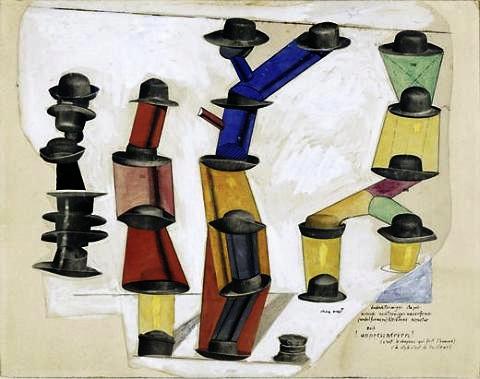
The Hat Makes the Man
Max Ernst
_______________________
Word for Word
Ben Zimmer on Rogets Thesaurus
Lapham's Quarterly
Thesaurus of English Words and Phrases
by Peter Mark Roget
(....)
No matter how tempting the metaphor, though, words are not people. We cannot run genetic tests on them to determine their degrees of kinship, and a thesaurus is not a pedigree chart. We can, nonetheless, look to it as a guidebook to help us travel around the semantic space of our shared lexicon, grasping both the similarities that bond words together and the nuances that differentiate them.
This was, in fact, more or less the mission of Peter Mark Roget when he published the first edition of his Thesaurus of English Words and Phrases in the spring of 1852. He organized sets of synonyms according to one thousand categories, neatly arrayed in a two-column format. Roget was utterly obsessive about making lists, keeping a notebook full of them as early as eight years old, and by age twenty-six he had compiled a hundred-page draft of what would become his greatest work. List making was a welcome relief from his chronic depression and tumultuous family life; it was a way of imposing order on a messy reality....(more)
_______________________
When Opium Was For Newborns And Bayer Sold Heroin
Esther Inglis-Arkell
io9
There was a time when mothers gave their babies opium, people bought hallucinogens at the local bar, and anxious patriots sent hypodermic needles and cocaine to soldiers as a present. It was called The Great Binge, and it's probably wrong to feel sad that it's over.
Today we have Bayer Aspirin. It relieves headaches. In the late nineteenth and early twentieth century, they had Bayer Heroin. It was most often a cough syrup, though it probably took care of headaches as well. Heroin was not a slang term developed for a drug, but an actual brand name claimed by the drug company. (They have since allowed their proprietary claim on the name to lapse.) This, and many other drugs were used for everyday maladies like dry throats, menstrual cramps, and babies who cried too long. The period between 1870 and 1918 was called The Great Binge — and people shoved everything into their bodies that they could....(more)
|

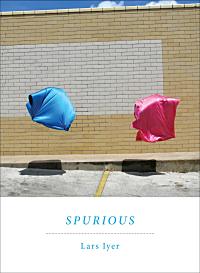


 The Age of Briggs & Stratton
The Age of Briggs & Stratton



































